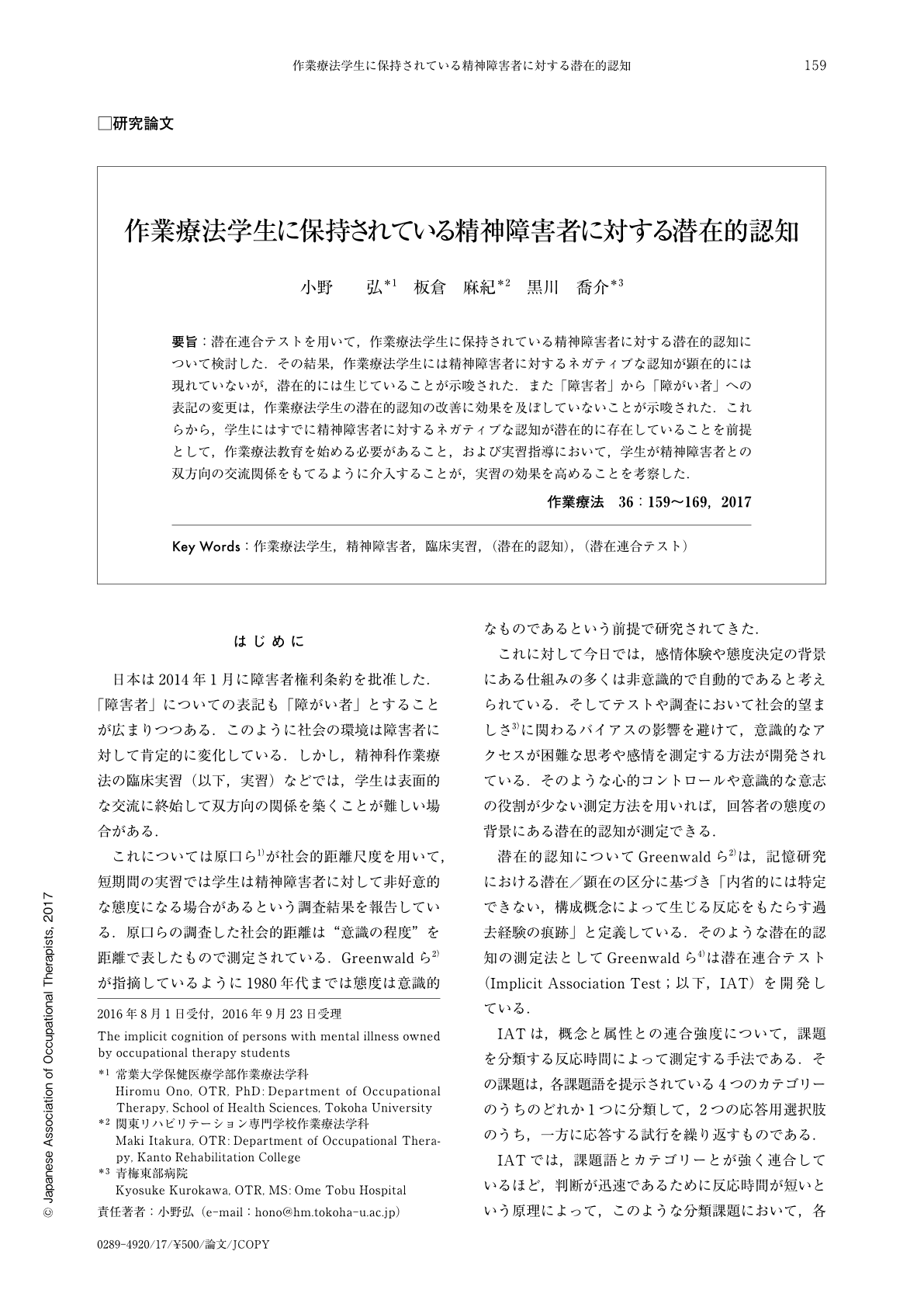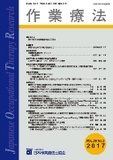Japanese
English
- 販売していません
- Abstract 文献概要
- 1ページ目 Look Inside
- 参考文献 Reference
- サイト内被引用 Cited by
要旨:潜在連合テストを用いて,作業療法学生に保持されている精神障害者に対する潜在的認知について検討した.その結果,作業療法学生には精神障害者に対するネガティブな認知が顕在的には現れていないが,潜在的には生じていることが示唆された.また「障害者」から「障がい者」への表記の変更は,作業療法学生の潜在的認知の改善に効果を及ぼしていないことが示唆された.これらから,学生にはすでに精神障害者に対するネガティブな認知が潜在的に存在していることを前提として,作業療法教育を始める必要があること,および実習指導において,学生が精神障害者との双方向の交流関係をもてるように介入することが,実習の効果を高めることを考察した.
The purpose of this study was to assess the effect of occupational therapy students' implicit cognition towards the mentally disabled through the implicit association test. The results indicate that the occupational therapy students did not demonstrate explicit negative bias towards the mentally disabled, but instead revealed negative implicit cognition towards them. Furthermore, changing the Japanese notation for the term “disabled” from the Chinese character to hiragana had little effect on the students' negative implicit cognition. Therefore, it is necessary to educate occupational therapists knowing that the students have implicit negative cognition towards mentally disabled patients, and that fieldwork instruction should include opportunities for students to develop mutual relationships with mentally disabled patients.

Copyright © 2017, Japanese Association of Occupational Therapists. All rights reserved.


